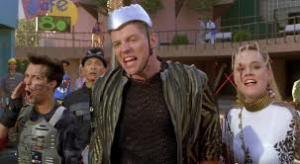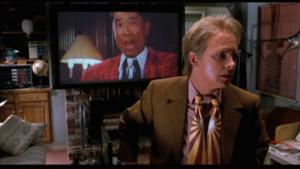Greetings, dear readers! Your humble blogger understands and appreciates that many of the kind workers’ compensation scholars out there, some of which may, in terms of e-mail subscriptions, be called “followers”, have today off work in observance of Martin Luther King day. As always, your humble blogger urges his readers to not only take a holiday off to rest and catch up on chores, but also to reflect on the reason that so many businesses have their doors closed in observance.
Now, that being said, your humble blogger saw a writ denied case that would tolerate no delay in commentary. So, without any intended disrespect to the legacy of Dr. King, your humble blogger now brings you the case of Montejo v. United States Fire Insurance.
Therein, applicant sustained an injury to his neck and shoulders as a cumulative trauma. The defendant requested a report under Labor Code section 4064, which was discussed previously in this post. Although sub rosa video, along with applicant’s deposition transcript and medical records were sent to this physician, the physician did not examine applicant. (Dear readers, your humble blogger has no experience with the physician named in this case, and so declines to name him. After all, your humble blogger does not like to name names.)
The 4064 physician wrote a report in which he concluded that applicant was a malingerer and had masochistic tendencies, and that his level of disability did not appears to match his activities in the video. Defendant sought to serve this report on the primary treating physician, the QME and the AME (your humble blogger presumes that there was an AME for some issues, but only a QME for others).
Applicant objected, arguing that the report would be prejudicial and sought an Order preventing service of the report to any of the relevant medical authorities. After all, if defendant could get the primary treating physician to comment on the report, even to condemn it completely, then, presumably, the primary treating physician’s report would incorporate the 4064 report, and both could be sent to the QME and AME.
The issue came before the WCJ, who ruled that the report could not be provided to any physician because it was “inadequate.” The WCJ noted that there had never been an examination by defendant’s 4064 physician of applicant, and that there was no foundation for the 4064 physician’s qualifications to comment on neither the results of surgery nor the claim of psychiatric injury, as the 4064 physician was an internist. From the WCJ’s position, it appears that there were also several layers of hearsay relied-upon by the report.
The WCAB was not receptive to defendant’s petition for removal, adopting the WCJ’s report and recommendation and denying removal. The Court of Appeal, likewise, denied review.
I know, I know, dear readers, not the case of the century. But, it struck me as interesting and particularly worthy of relating because of the flaws found by the WCJ should be a cautionary tale for us all.
The first thing to recognize is that 4064 is not really in play anymore. SB-863 amended 4064 to drastically limit the admissibility of these reports. However, if you aren’t too happy with the PTP or what the Medical Unit sends you, and an AME is not a viable option, you can still get a 4050 exam and report. That being said, the flaws found in this case’s 4064 exam should be avoided in your 4050 exam to increase the odds of it being reviewed by a PTP, and eventually a QME:
- There should be an actual, face-to-face examination;
- There should be a listed and review and summary of all medical records and reports;
- There should be some foundation laid for the physician’s qualifications, including, but not limited to, a curriculum vitae;
- To the extent possible, all conclusions should be explained and supported in detail: it’s very easy to say that an opinion is based on the physician’s “training and experience,” but it would be far better to explain that “symptom X is typically not found in the presence of condition Y as explained in Medical Journal ABC…”
- Finally, the report should not rely on “hearsay” too heavily – although what the defense attorney or the private investigator relates to the evaluation physician is likely true and accurate, the report will be more reliable if information is obtained from primary sources, such as medical records and the injured worker him or herself.
As always, dear readers, life offers no certainty except death and blog posts, so take the rambling postings of your humble blogger as worth as much as what you paid for it. But, once you have engaged in meaningful reflection of today’s holiday, perhaps you can also reflect on this tiny corner of the workers’ compensation world.



